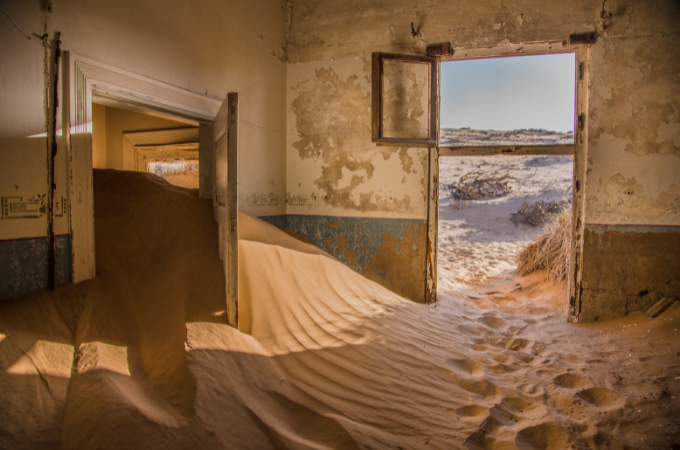
I met Kamuti in the rarest of places. It was as rare for me as could be, not a place I would ordinarily find myself in. For her, it was as usual as lilies in a pond. She was right at home, and sometimes, I wonder why she took a liking to my intrusion on her solitude. Perhaps the affection was mutual right from the start. I certainly liked her. My Kamuti. She would always hold a special place in my heart, regardless of our diverse fortunes. Sometimes, I liked to think meeting her taught me more than she ever knew, or she wanted me to know. I guess my insatiable thirst for knowledge could not be quenched by her subtle, wily approach to teaching. She would probably roll her eyes at this. I never meant to be subtle, Doyin, that’s just who I am. Our relationship never suffered from the endless loop of arguments and counter-arguments, a bitter fusillade of warring and sparring that existed in her other relationships.
I met Kamuti when she was catering for her younger ones. I was struck by her heart of gold and her very being. Even her name intrigued me. She once told me it was a name reserved more for males than females. Why she was named Kamuti, she would never know. Here in Africa, where the cast of fate’s knucklebones and an almost unshakeable belief in the hands of destiny plays an important part of our consciousness, it seemed almost fitting she was given this name. Not that she minded anyway, she lived up to it, rising to become a striking presence in her domain.
Living in the harsh plains of the Kalahari is not for the faint-hearted. Kamuti would know that better than most. The unforgiving weather, coupled with the depressing realization of the presence of few allies and several foes contrived to create a mental siege which she perpetually lived under. Life as a single parent didn’t help matters either. She often risked life and limb, wandering out of her comfort zone to complete her tasks. It wasn’t safe, but she stuck to her obligation with a fierce doggedness that defied the usual. For Kamuti, safety equated obscurity, and being obscure was tantamount to being non-existent. Shorn of a partner, the onus fell on her to not only provide, but to protect. The terrifying jostle for life, the blinding thrill in living, the heart-stopping euphoria of conquest, and the hair’s breadth escape from skirmishes were bread and butter to Kamuti. She loved her younger ones with every ounce of her being, doing all she could to protect them from the adversarial life they were born into. It was a harsh life, where blood was shed aplenty, where life was a prize to be fought for, clawed for, and seized with ruthless, brutal and oftentimes merciless means.
Kamuti had a seemingly endless abundance of dauntlessness and sheer determination. Sometimes, I would watch her come in after the day’s job, weary, yet trudging on. She would sit quietly, yawning from fatigue, while her rambunctious children and sisters horsed around with little care. In those times, I wondered if she would ever get tired of the constant battles, or worse, if she would never come back. She sometimes came back unscathed, other times, she returned nursing wounds. She rarely showed any discomfort. Like a Spartan warrior trained to show no pain, or a gladiator, trained to kill without any thought or regard for his safety, Kamuti surpassed them all in bravery. They would have loved her, that I’m sure of. She seldom fell into the caliginous depths of despair. At the same time, she was far removed from the darkling, brooding qualities that seemed to personify the older members of her kind. I asked her why her family was often that way. She smiled wearily and told me it was probably from spending too much time in the dark. I laughed at that one. She had a dry sense of humour. Her life didn’t give much place for warmth. Finding that balance was nearly impossible. That stoic demeanour rarely slipped even when she was with her children. I don’t think they cared. Her luminous honey brown eyes lit up whenever she was with them, and that was enough. With me, she was often at ease. Though not the same way she was when with her children, it took some adjusting. She often told me our friendship was as random as a kite’s trajectory in a storm, and I couldn’t argue with that.
I think I understood some of what her life was about, and it fascinated her to have someone who could see it differently than she did. I, on the other hand, was awed by a new exposure, because I had only known her kind from afar. Our fates were far apart, and what formed a source of overlap for us both was our headstrong struggle against fate, the silent wish for better outcomes, the desire to chart a more pleasurable course, and lastly, the inevitable, bitter acceptance of it. One thing we both accepted was the adversarial nature of our fates. Hers more than mine, however. It was probably the universality of her fate in a nutshell. I always questioned how she managed to live through it without losing hope, or growing faint. I struggled to understand it, and she often sensed my confusion.
“I don’t understand how you can live this way, and be at peace with it,” I said one evening. We had an unobstructed view of the sun as it slowly sank beneath the horizon.
She paused, took her time before answering. “It’s the way it has always been, I can’t fight it.” She had just had her dinner and was content to watch her children engage in playful fights with one another. I turned to look at her, but I saw nothing new. That same peaceful look was on her face, her eyes always guarded, like someone telling a well-worn lie. I knew she would never lie to me, yet she would probably not tell me the whole truth either. She would always leave me with questions; a puzzle to solve that left me even more confused. I never meant to be subtle, Doyin, that’s just who I am. I didn’t dislike her for this, it only made me use my head more, and slowly, as we grew more acquainted with each other, I liked her more for it.
“Then you’re at peace with it?”
“I’m not at peace with it, peace comes at a cost.”
The dry Kalahari wind blew in my face, bearing grains of sand. You would think I would be used to this by now, after spending so much time out here with her, but I wasn’t. What did she mean by peace coming at a cost? I often tried to interpret her words by making a contrast to my own world, but it often drew up zigzagged conclusions, leaving me with no clear answers, reminding me of the kaleidoscopic nature of life. I wondered what peace was to be found in the unfriendly weather of the Kalahari, that gloomy, tenebrous land watered with blood, cries and death.
She could sense my mounting frustration at her answers, and she said, “I find peace in the unattainable reach for serenity.”
For a moment, I wondered if Kamuti had lost her senses. It sounded to me like she was saying she found peace in the fact that there was no peace. It was one of those statements you heard once that made you furrow your brows in confusion, and nod later in gradual understanding. I guess she was right after all. She found peace in an acceptance of her cruel, forlorn world devoid of warmth, seeing the order amidst the totally anarchical universe she was thrust into. Like a bolt of lightning, I was struck by a quote I heard in a movie but never managed to make sense of, “A man must accept his fate, or be destroyed by it.” I remembered the sardonic, potty-mouthed gladiator trainer, Quintus Batiatus, in the movie Spartacus, uttering those words to his slaves to quench the hope of a life free from slavery. Kamuti was right. That was the only way she could find peace. The thought of that should have scared me. Oddly, it didn’t. Like the sharpened yet blunt end of a needle, different, yet alike, I accepted it as a big part of who she was.
My Kamuti.
With Kamuti’s world, I often wondered if she was afraid. I knew I would be. Dangers, horrors, and shadows lurking all around me. Just the thought alone would drive me out of my mind. She chuckled about my tendency to get scared every now and then, and how I often displayed fear. I was slightly embarrassed at that. Though I wasn’t timid, I wasn’t the bravest guy around either. It was only human, wasn’t it? Being afraid every now and then.
“I guess you’re right,” she said, yawning. It had been a long day.
“But?” I waited for her to continue. She smiled at me like I read her mind. I couldn’t help but smile back. I had been around her long enough to know how the complicated clockwork that was her mind turned.
“Each time I go out, there’s the possibility I don’t come back, you know that already, right?”
I nodded rapidly. That age-old “don’t let fear control you” talk that people always spouted but half-heartedly believed in and rarely put into action. That was basic to me. However, this was different. This was living under a weight, living in a battlefield where a step carelessly taken could mean taking your foot off a mine, exploding, and leaving you in bits, or leaving you on the precipice of life if you were lucky.
“The man who casts the bones of fate might one day see his own death before his eyes. I see mine every day, and I know it’s coming, whether I like it or not.”
I had never heard anyone speak about their death so casually, with such finality, it seemed they were discussing yesterday’s news. Kamuti never complained about her life. It was her acceptance of who she was and what she was meant to do.
“You see those red sand dunes?” she motioned with her head. I nodded. When the sun was at its peak in the sky, the red dunes glinted with fierce intensity, despite the distance.
“I don’t want to leave here. It reminds me that this is home.”
A tiny, silly part of me wondered if the red colour was due to all the blood that had been spilt on the land. She smirked when I told her this. Her dark humour was rubbing off on me.
“Alright then, if it is blood like you say, don’t cheat me. Let my blood water those sands too. I don’t want to end up on someone’s walls.” She would never leave; the Kalahari was her home. It was the African way. We liked to be buried at home.
Kamuti’s heart was as beautiful as her body. She had deep pools of captivating brown eyes and a slender, lean body. Her skin had spots, but it only served to increase her allure; it was probably one of the reasons she was harried and hunted more than others. She took it all in stride, it was part of her life. That willingness to sail on and strive against the winds of the Kalahari made her an enigma.
In that place of thirst, the Kalahari, borne from the Tswana word, Kgala, where the African sun burned; the tears of suffering, roars of victory, howls of pain, and that pendulum that swung ever so delicately, oscillating between life and death, were all part of Kamuti’s life. She made me see it differently. I should have been sad at her passing, but for some reason I wasn’t as sad as one would think. In a way, her words had prepared me for her impending fate. She had her joys wrenched from her in a most brutal manner. After years of fighting and sparring, her body had grown worn from fighting one battle too many. She was chased from her home in a bloody duel that left her bruised and battered. Her children were lost to her forever. I never saw her again. Maybe she didn’t want me to witness her passing, with her body so weak and frail. I accepted it. I wouldn’t begrudge her that little piece of hubris, and I think I preferred my last image of her too. Her spirit, I’m sure, would never die in her chest. It would burn fiercely, like a plummeting star shining till its descent to the ground.
“Keep them safe for me. It’s a harsh life out there.”
I always liked to think those were her last words.
Shame I couldn’t hear them.
Photo by jean wimmerlin on Unsplash



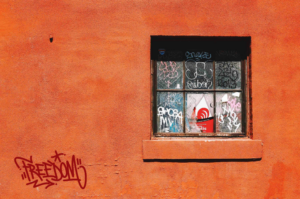

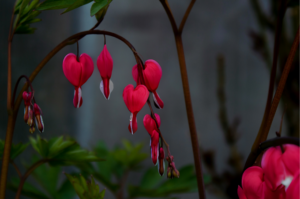
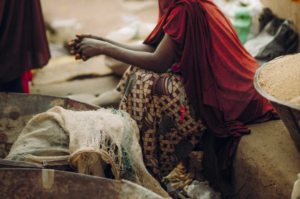
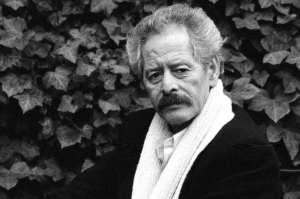
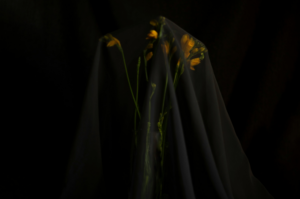

Michael February 22, 2023 06:43
Great job !